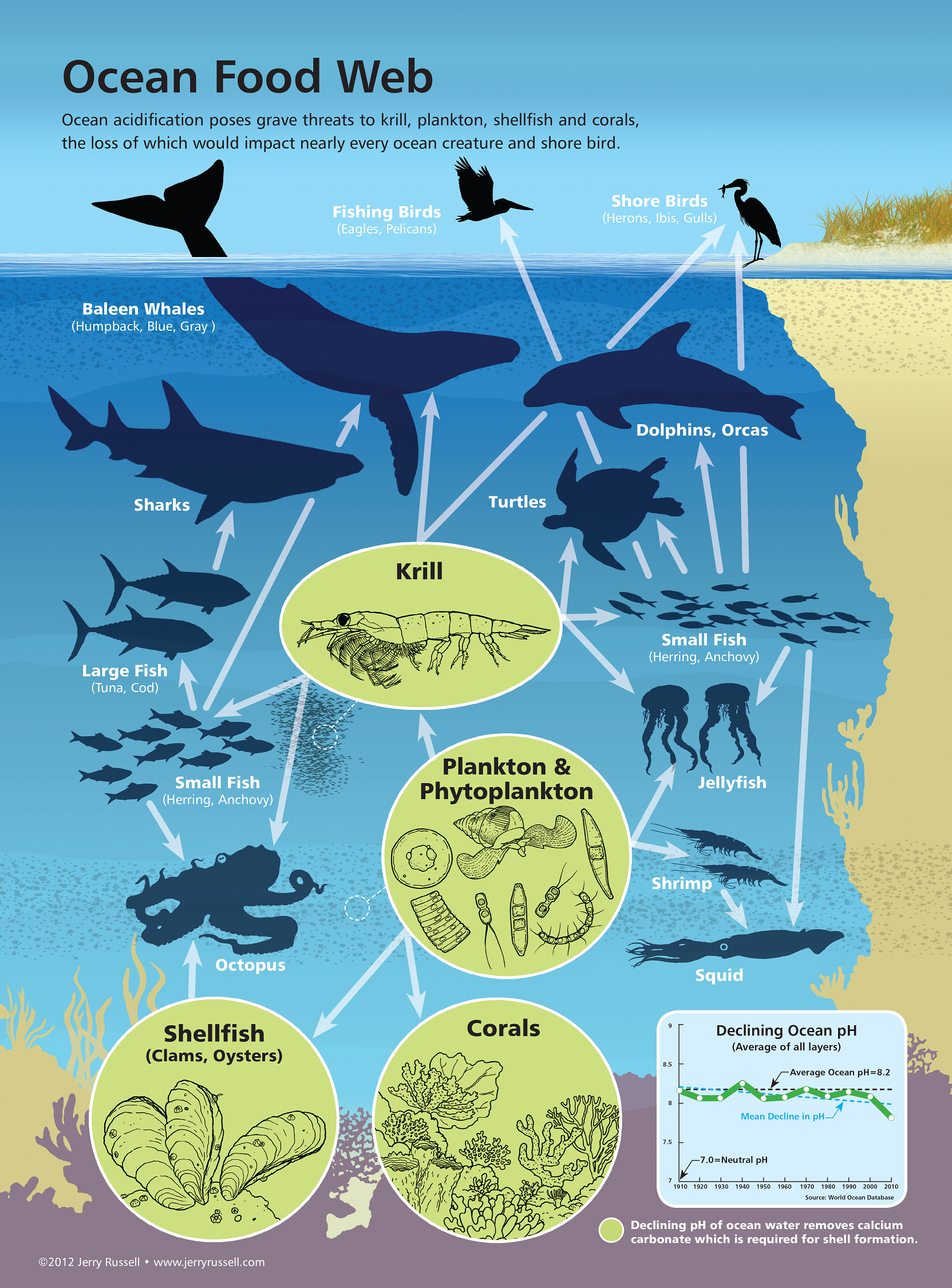Pteropods are very small free-floating marine snails that play a very big part in oceanic ecosystems. Although tiny, these creatures are extremely important because they make up an important part of the oceanic food web. Scientists have seen the negative effects of ocean acidification on pteropods and are studying these organisms to better understand the problem. This slideshow is part of our Ocean Acidification Education series.
Pre-viewing Questions
- What is a food web?
- What is plankton?
Discussion Questions
- What do you think might happen if pteropods disappeared from the ocean?
- Why do you think it is important for scientists to study pteropods?
- Ocean acidification is caused by excessive CO2 in the atmosphere. Make a list of five things you can do to create less CO2.
Extension Activity
- Making Naked Eggs, Exploratorium. Dissolve an egg in vinegar to see the effect of an acidic solution on a calcium carbonate shell.
- Ocean Acidification Lab, Ocean Carbon and Biogeochemistry Program. Hands-on classroom experiments for grades 5 through 12 with lesson plans, worksheets, and answer keys.
- Research other marine organisms that are being negatively affected by ocean acidification. See if you can identify organisms that may thrive in a more acidic environment. Discuss how this might change the biodiversity of the ocean environment.

Links to Learn More
- Charismatic Microfauna, Dr. Gareth Lawson, research blog from Woods Hole Oceanic Institution. You can learn about oceanography and follow the exploits of an oceangoing expedition. It includes interesting images and video of pteropods.
- Tiny, Ubiquitous, Vital, Delicate, Vulnerable, Oceanus Magazine, Woods Hole Oceanic Institution. Amazing images of different pteropods -- a great jumping off point for an art project.
- Ecological Footprint Calculator, Islandwood. Calculate your ecological footprint and understand how the choices you make affect the size of your footprint on the earth. This is a simple survey that kids can complete themselves.
- Household Carbon Footprint Calculator, Environmental Protection Agency. Calculate an estimate of your family’s greenhouse gas emissions and explore the impact of taking various actions to reduce your emissions. This survey might need help from adults at home.
Next Generation Science Standards
Performance Expectation: Apply scientific principles to design a method for monitoring and minimizing a human impact on the environment. MS-ESS3-3
Disciplinary Core Idea: Human activities have significantly altered the biosphere, sometimes damaging or destroying natural habitats and causing the extinction of other species. But changes to Earth’s environments can have different impacts (negative and positive) for different living things. ESS3.C Human Impacts on Earth’s Systems Crosscutting Concept: Cause and effect